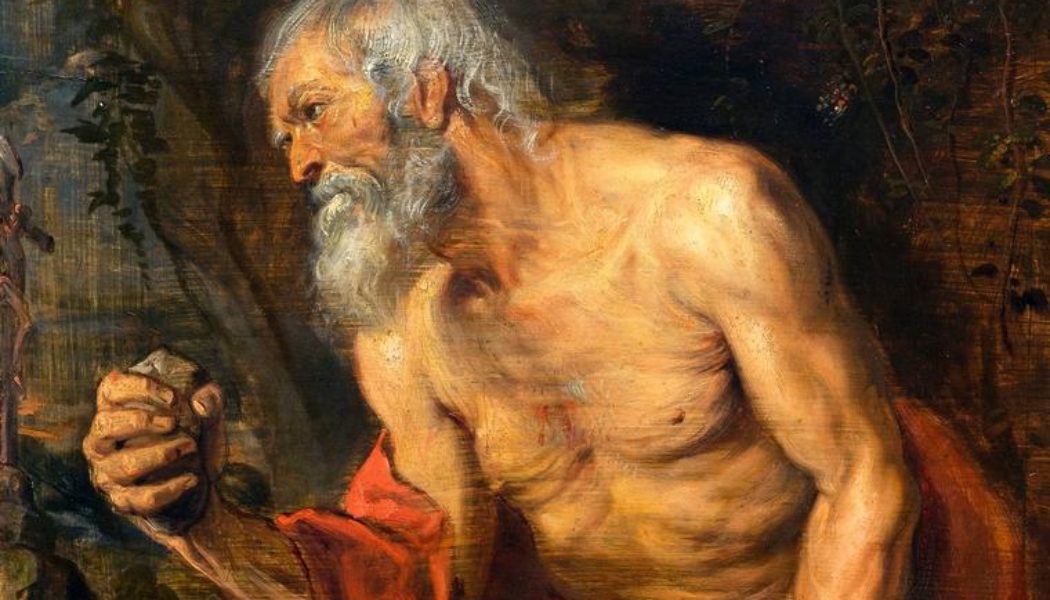
To which saint can we, the occasionally irascible, turn?
Is there anything more comforting than a notably flawed saint? I do not mean a “bad guy turned good” situation like St. Paul. His story and conversion is beautiful and proves that no one is beyond redemption. But what if you are not actively persecuting Christians? What if your vices are less dramatic but still dangerous?
Who is the saint for the sarcastic and the ornery? Who fought and worked tirelessly for the Kingdom even as his fellow Christians roiled underneath his acerbic wit and exacting standards? Who battled against his quick temper and sharp tongue, returning defeated to the confessional again and again, sheepishly mumbling that he once again lost his temper despite his most sincere efforts, and is desperate for God’s grace?
To whom can we, the occasionally irascible, turn?
For this dubious honor, I nominate St. Jerome, the great translator and Doctor of the Church who lived at the turn of the 5th century. After spending several raucous years as a student in Rome, engaging in the debauchery endemic to the sunset years of the Roman Empire, Jerome was baptized into the faith in AD 366 by Pope Liberius and offered his significant intellect to God to use for his Church.
Although he had left his libertine past behind him, Jerome was far from faultless, even after his years living in prayerful solitude and eventual ordination. Hot-tempered and gifted with a keen wit, Jerome engaged in debates and quarrels, using his often-vicious pen both to defend the faith from heresy and to argue with his fellow clerics who disagreed with him. Even the great St. Augustine could not count himself safe from the scathing criticism of his brother in Christ.
I find myself reassured when I read about these squabbles among the great giants of our faith. These men led Christianity forth from the burning wreckage of the Roman civilization while defending the faith from myriad threats both within and without. Too often it is easy to remember these brave saints with their heroic deeds and to assume that they were hardly bothered by the petty sins and vices to which we fall prey. It’s almost a delight to realize they were not immune to bickering and words spoken hastily in anger. They provide the roadmap for allowing God to transform their personal weaknesses on the path to sanctity.
In artwork, Jerome is often pictured with a stone, which he would use to beat his chest as he repented for his sins. Once, upon seeing a painting of the great saint, Pope Sixtus V commented: “You do well to carry that stone, for without it the Church would never have canonized you.” His words are a beautiful reminder that the great deeds of the saints are not what ushered them into eternity.
The Christians of Jerome’s time battled heresies and navigated contentious Church councils in which the entire fate of Christianity weighed upon them. Jerome himself is credited with translating large portions of what would become the Vulgate.
But these mighty achievements are not why he is a saint. He is a saint because he was a weak, fallen man, who never stopped repenting of his sins and striving to grow closer to Christ. He is raised up as an example to all of us. We look not to his temporal achievements, which were manifold and which continue to bear fruit in the Church, but to the stone in his hand. May we grow in humility to follow his lead in repenting of our sins all the way to heaven, so we can thank him ourselves for giving hope to his fellow quick-tempered Christians.
St. Jerome, pray for us!








